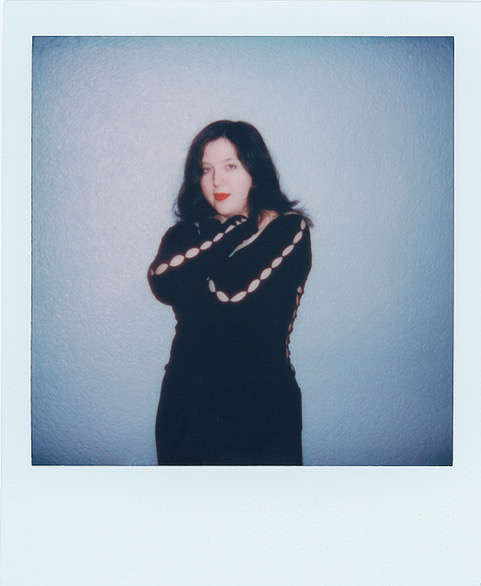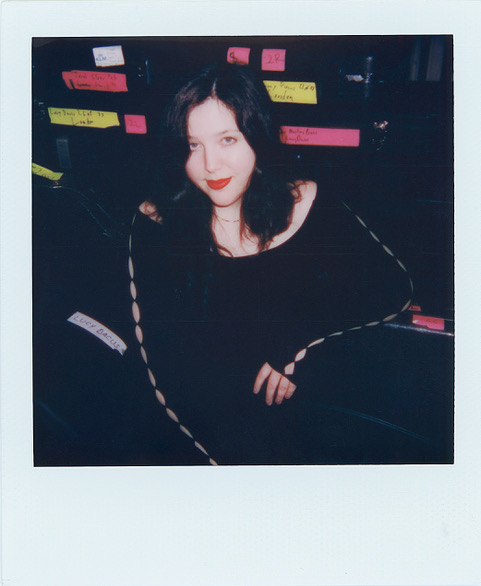Some time has passed since I caught Lucy Dacus on the phone during the German leg of her Home Video tour. Phone interviews always feel a little stiff to me. You can’t see the other person’s face, their reactions to questions and answers. We take a moment to get into the flow of the conversation, but then Lucy opens up and dives deep into the record that contains some of the artist’s most personal songs.
While the singer gathered a large following through social media fan communities, for her, releasing the music is secondary. She tells me that the most important thing is how songwriting has helped her come to terms with personal struggles. When writing music, Lucy gears her mind towards the past. “Through music I can reexamine and deal with past emotions. The thing about the past is that it keeps growing and it keeps changing. Every day there is a new day of the past. It grows layers like a tree and there are more rings around the memories each day and each year.”
The Privacy of the Past
Writing through her past, teenage years, and grappling with sexuality. Home Video and Kissing Lessons are very much about that part of the singer’s life growing up in Richmond, Virginia. “I think, I’m done now writing about that period of my life”, Lucy laughs, and I imagine her trademark bright red lipsticked grin.
But with music this personal, dealing with the past publicly is ought to stir up some trouble. “It is helpful for me when people who recognize themselves in the songs reach out to me. It makes me think about their perspectives”. Most Lucy Dacus songs address someone explicitly, a named or anonymous “you”.
“Addressing someone allows me to be more intimate. If I have the person in mind, I know how to communicate with them and what to say.”
Space to grow the words

Photo by Louisa Zimmer
There also lies a certain privacy when publishing songs about the past. A self that is no longer you anymore, just a watercolor painted memory. It can be easier to lay bare those sketches of a person in public than unveiling the struggles of the present. Lucy laughs again when I say this. “Wow, I think you are calling me out. Yes, writing about the past, I feel removed enough. There is a clear boundary. This is me and this is who I use to be.”
It gets harder for Lucy Dacus to put her present thoughts into writing. “I try to be self-aware, but I am slow sometimes and it can be hard to see who I am right now clearly. If I try to write about something that’s going on now my brain would still be like blank.” Also, of course, the singer mentioned that especially since she has moved into the eye of the public increasingly, there are things that Lucy Dacus might rather keep to Lucy Dacus. “Maybe eventually I feel safe and good enough to share those things – when they’ll be past.” It takes time to transfer things you are feeling into things you can say or sing.
When Your Songs Feel like Covers
With time going by the previous releases also fade into the past. Lucy Dacus has put out three records already and on Night Shift she poignantly sings about that feeling of present things fading into the past. She sings, “I hope in five years these songs feel like covers”. And there lies a freedom in that, Lucy points out. Her older songs do indeed feel like covers to her. “It is a good feeling. Kind of like singing karaoke.”
“The song has travelled much further than I ever have and means more to other people now”

Photo by Lousia Zimmer
Lucy Dacus’ music has touched people across the globe with their heartfelt narratives and almost childlike sincerity with which the artist examines relationships and her surroundings. Yet, as music serves as a way of coping with the hardships of life, most songs are inspired by a heavyweight topic and carry sadness and melancholy in them. “I have a different relationship to songs based on negative memories. They are much harder to sing, but they are also more impactful. Lighthearted ones are always such a relief to play during the show.”
“It is much harder to write about happiness than to write about sadness. I have made it a goal of my life to get good at that.”
I am sure that for an artist who finds beauty in sad memories and turns them into soothing songs that touch the souls of other people, writing about moments of euphoric untamed happiness will come easy. Talking to Lucy Dacus and watching the resonance to her tour in fall, it seems like this is just the beginning for the artist. 2022 and 2021 might have been years of a homecoming, but the doors to the rest of the world are wide open.
And I could not end our conversation with the fellow avid reader without checking her current bookshelf. Last reads of Lucy Dacus include Cult Classic by Sloane Crosley and Ross Gay’s Catalog of Unabashed Gratitude.
Home Video is out on Matador Records.



